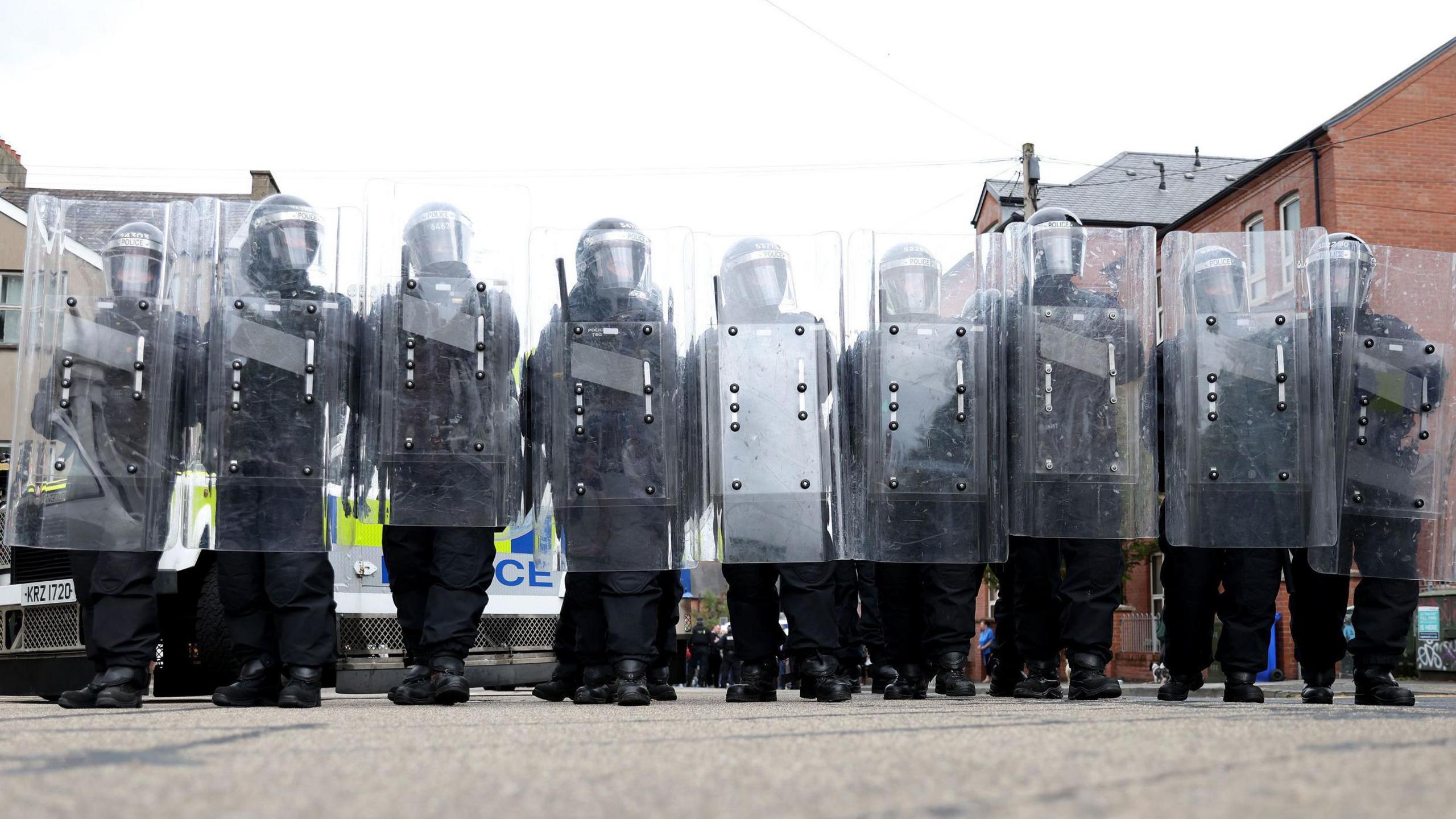An unlikely protest alliance during Belfast violence
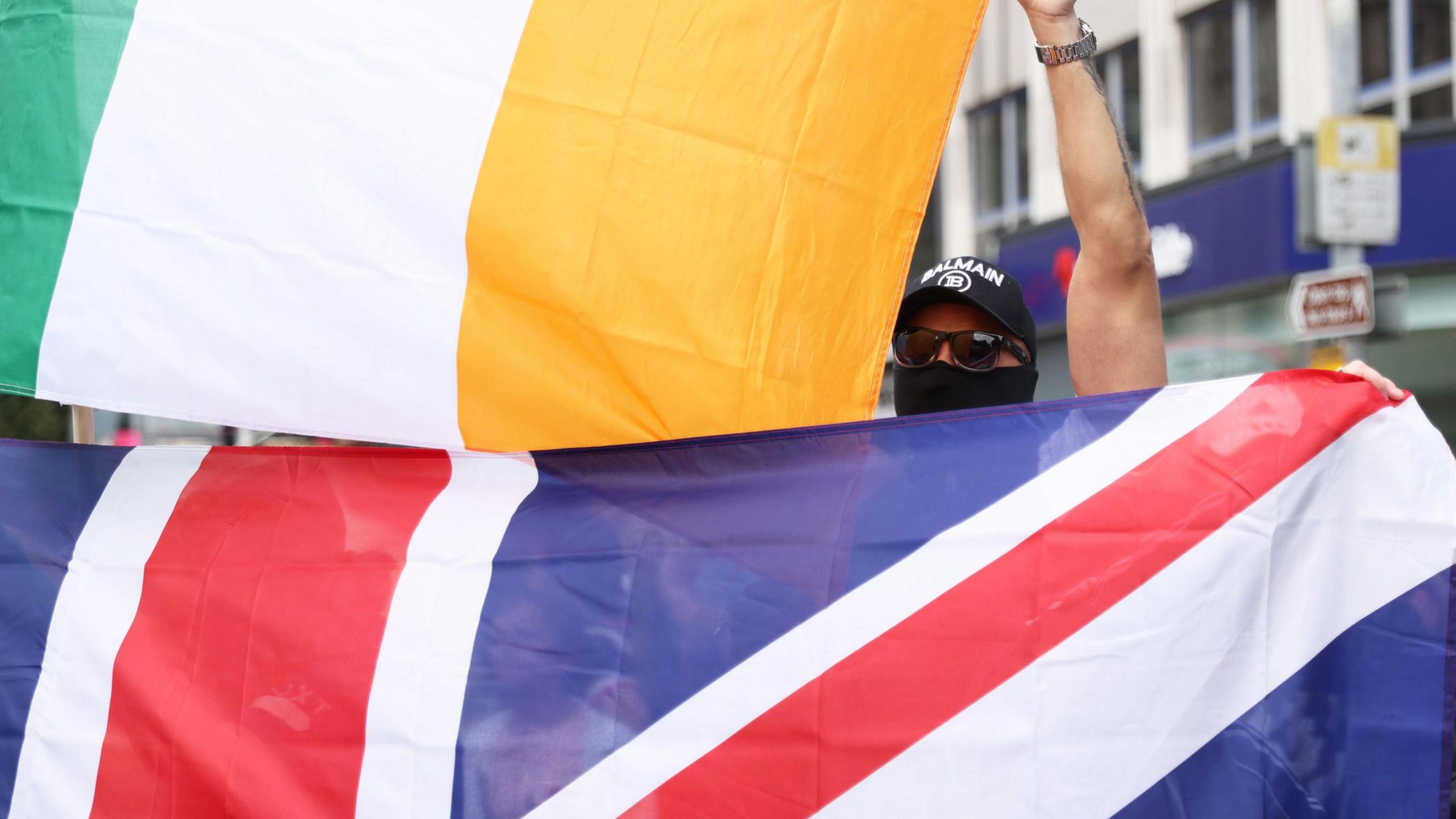
Both British and Irish flags were used by protesters
- Published
The anti-immigration protesters who caused trouble on the streets of Belfast included British loyalists and Irish nationalists in a cross-border alliance of extremism.
They were brought together by anonymous social media posts, and personal contacts in shadowy far-right circles.
It is difficult to pinpoint one group or individual behind the protest in Belfast city centre.
The flags, banners and emblems on display showed a link to loyalism, along with far-right extremists from Dublin.
Union flags and Irish tricolours were waved side-by-side before trouble broke out in Belfast on Saturday afternoon.
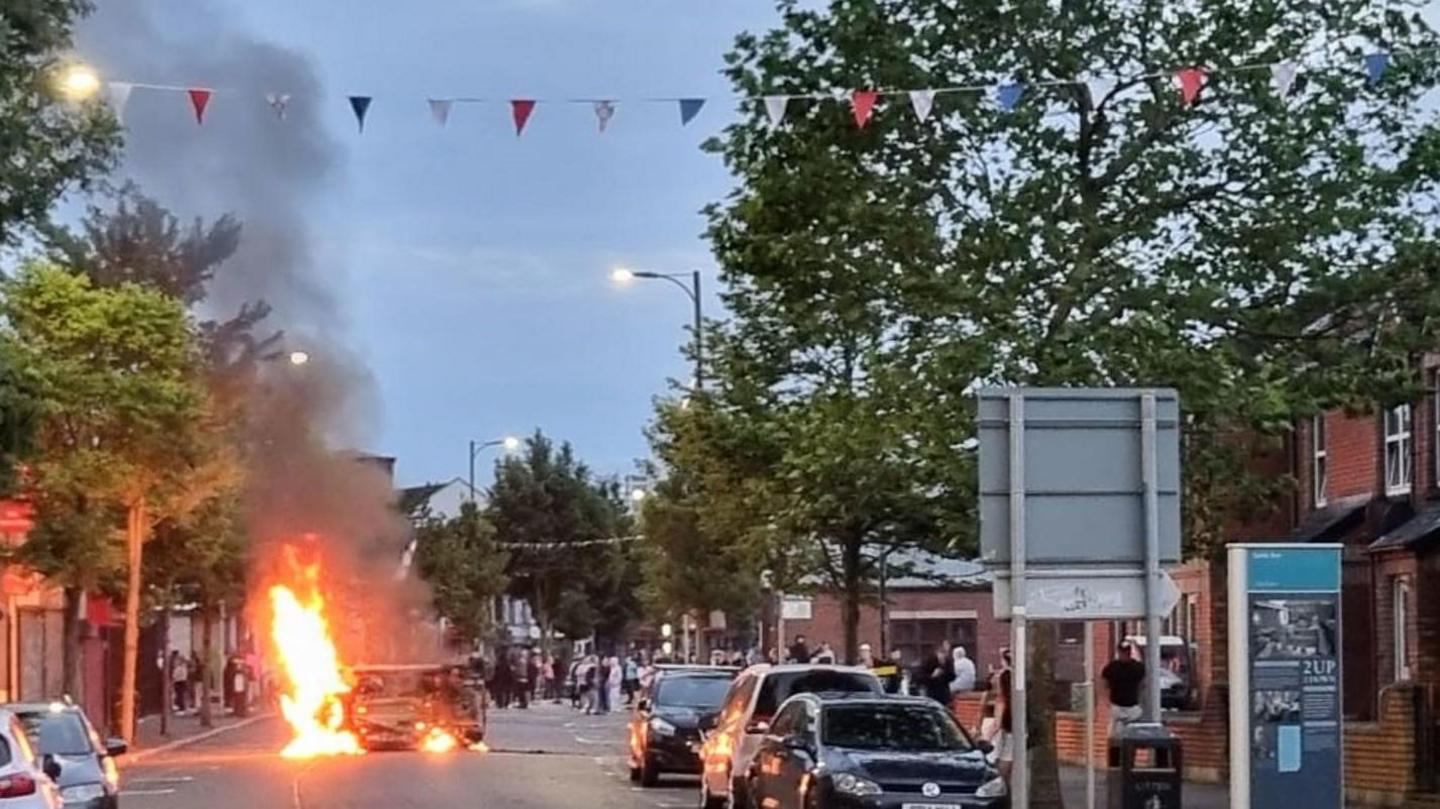
Violence took place across Belfast on Saturday
“Divided by politics, united by racism,” observed one onlooker as the unlikely protest pact emerged.
Although many of those protesting seemed bent on confrontation, there were some in the crowd of several hundred who were attempting to demonstrate without violence.
In terms of loyalist paramilitary factions, there are suggestions that some elements of the UDA (Ulster Defence Association) in south Belfast or east Antrim may have been involved.
'Destruction in their heart and in their mind'
Retired PSNI officer Jon Burrows watched social media footage of the protesters.
He said: “It looks like there was a gather-up of people from across different communities. There may be some paramilitary involvement, we don’t fully know.
“But what we do know is that some people went out with destruction in their heart and in their mind.
“What is absolutely key is that we get swift justice, and I hope that the courts will bring very firm sentencing, to send a very clear message out that this will not be tolerated. And the best way to nip this in the bud is swift and firm justice.”
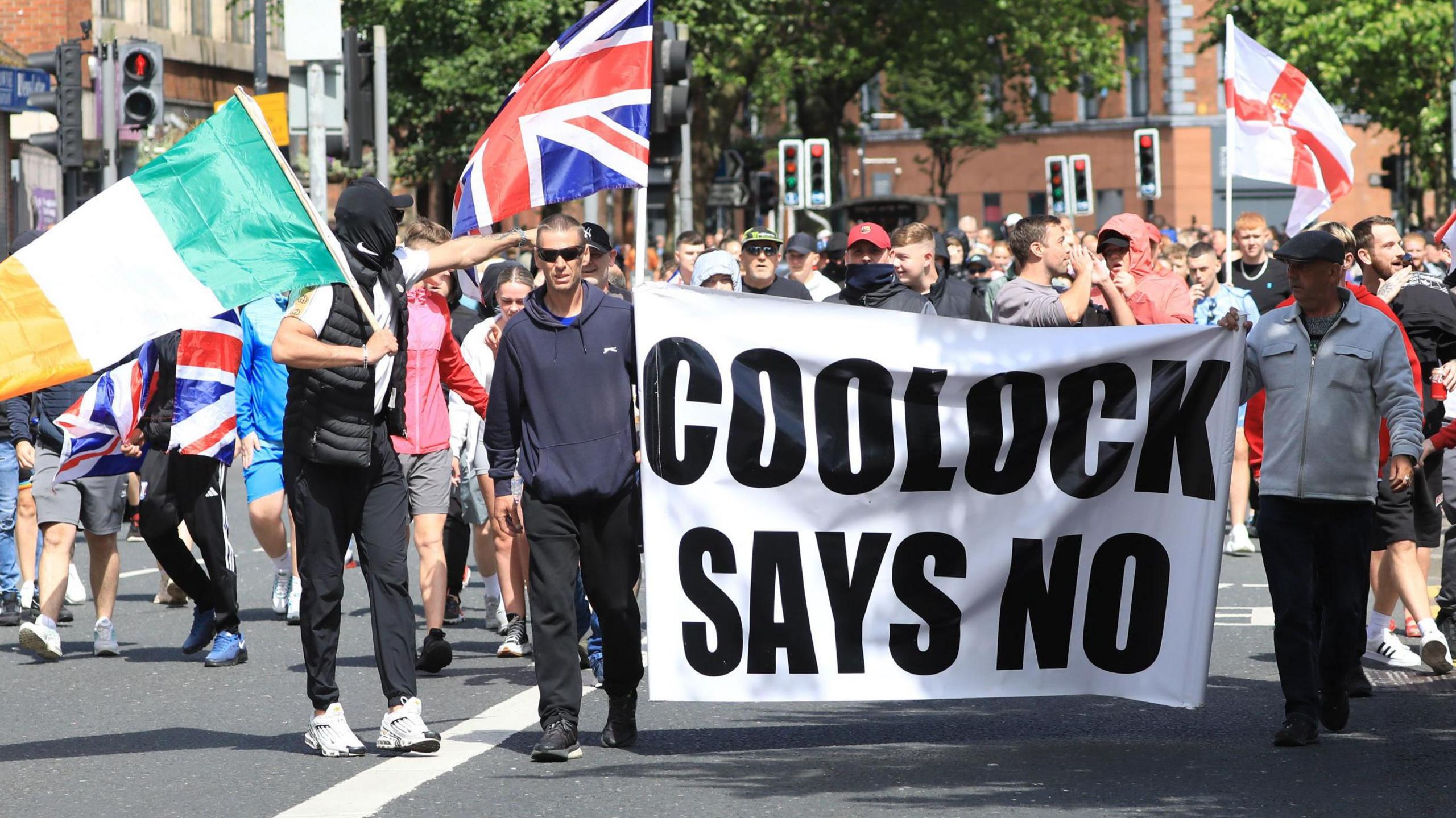
Protesters carried multiple banners and flags on Saturday
Given the divided history of Northern Ireland, much attention has focused on the British and Irish flags being used together by the anti-immigration protesters.
In Dublin, violence erupted last month during a protest at a site which had been earmarked for asylum seekers in Coolock in the north of the city.
Among the large banners carried around Belfast city centre on Saturday was one which stated ‘Coolock says no’.
When it first appeared, some protesters from Belfast shook hands with those behind it.
There are reports of people socialising as well as protesting together. The front page headline of the Belfast Telegraph on Monday was ‘Irish far right thugs drank with UDA in a Belfast bar’.
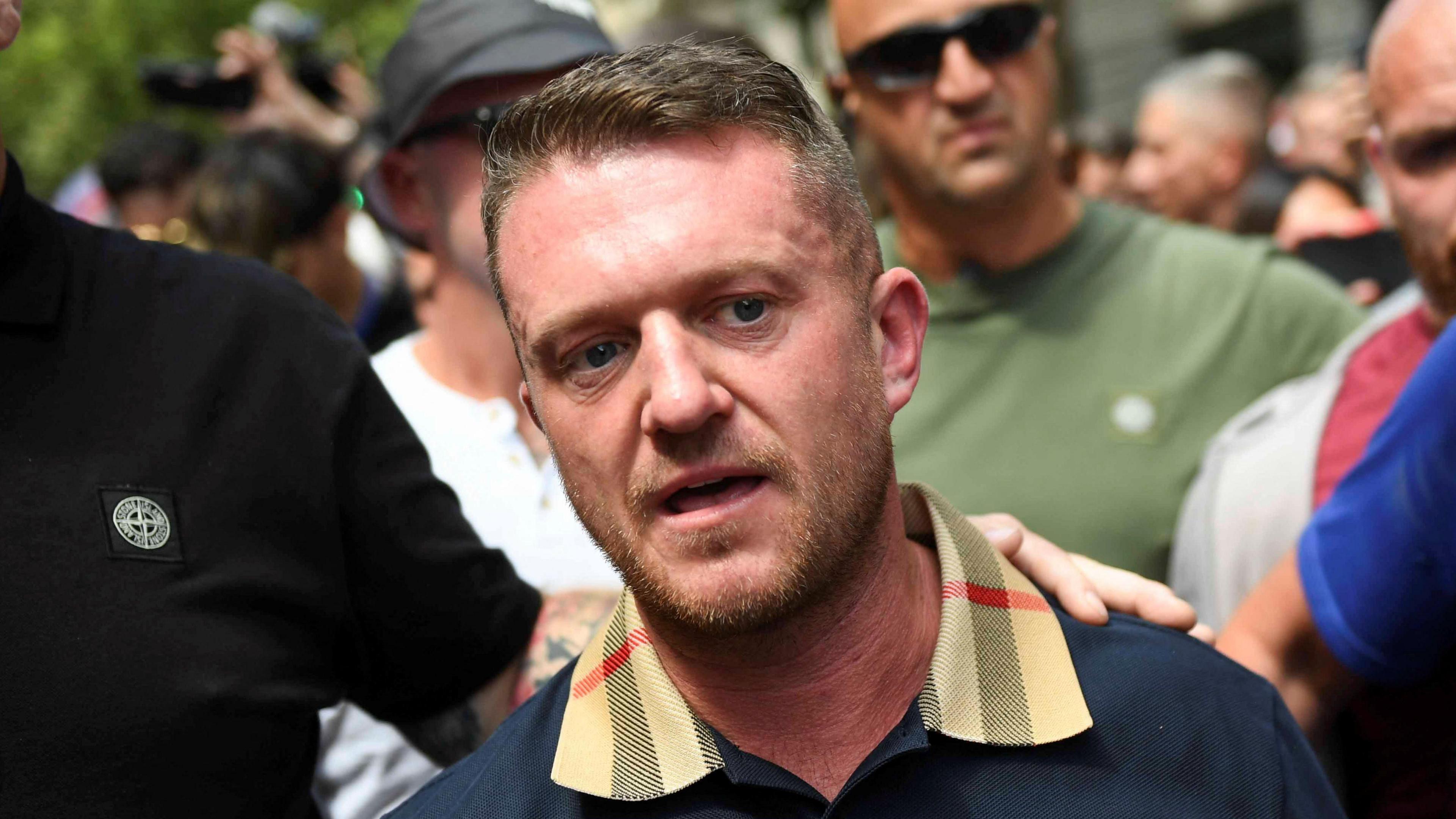
Tommy Robinson is a far-right campaigner
One of the chants shouted by some of those present was a song in support of the far-right campaigner in the UK, Tommy Robinson.
There is a long-standing connection between elements of extreme loyalism and far-right groups, including Combat 18.
The unrest in parts of England and Northern Ireland over the weekend has been linked, by some of those involved, to the deaths of three young girls in a knife attack in Southport a week ago.
False claims spread online that the person responsible was a Muslim and an asylum seeker who had arrived in the UK by boat.
Southport has 'mixed emotions' as disorder follows attack
- Published4 August 2024
At the Belfast protest on Saturday, derogatory chants and insults about migrants and Islam were heard repeatedly.
As a mob attacked businesses in parts of the Botanic area, any shop owned by someone outside the UK or Ireland was seen as a target.
Police appeared taken aback by the number of protesters and struggled to keep control as they roamed through the city streets.
The authorities will be better prepared next time.
However, damage has already been done.
- Published5 August 2024
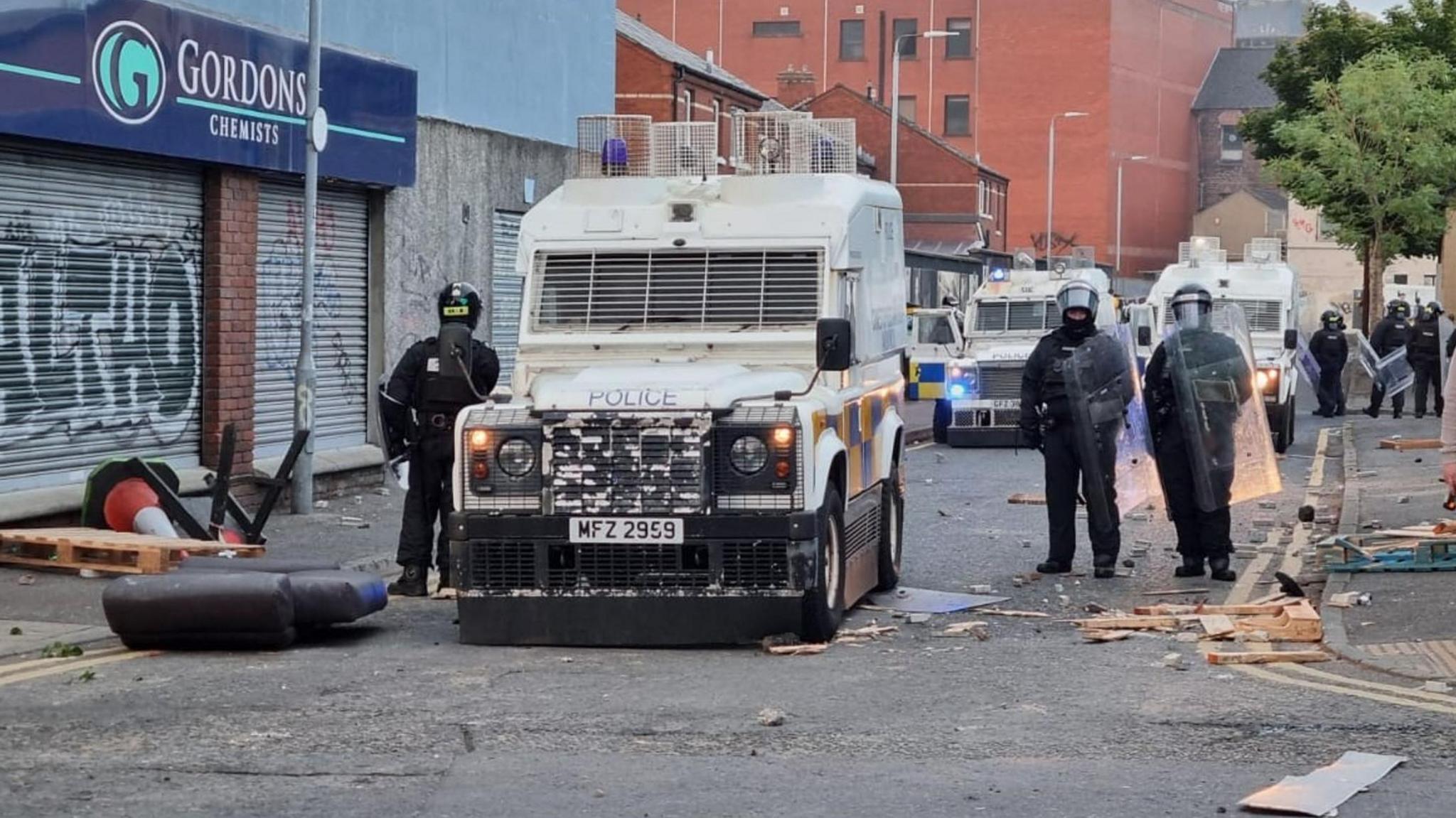
- Published5 August 2024
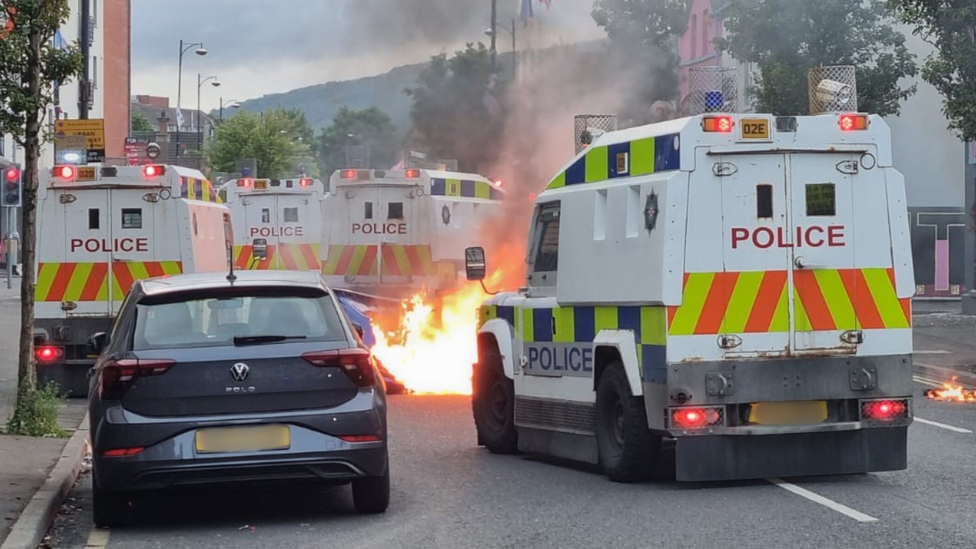
- Published5 August 2024
